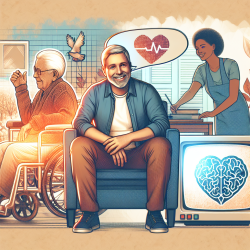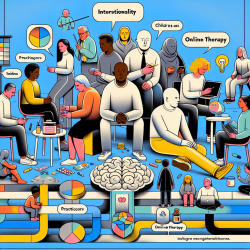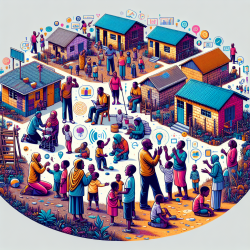Introduction
As a practitioner in the field of special education, you're likely aware of the challenges faced by older adults, particularly in terms of loneliness and mental health. Recent research from the 'HEAL-HOA' dual randomized controlled trial provides valuable insights into how volunteering can be a powerful tool in combating these issues. This blog will explore the findings of this study and how you can apply them to improve your practice.
The Power of Volunteering
Volunteering is more than just a noble act; it's a meaningful social activity that can significantly impact mental health. The 'HEAL-HOA' study, conducted in Hong Kong, aimed to test the effects of volunteering on loneliness, social engagement, and mental health among older adults. The study involved older adults volunteering to deliver tele-based interventions to others experiencing loneliness.
Key Findings
The study found that older adults who volunteered experienced:
- Reduced levels of loneliness, as measured by the UCLA Loneliness Scale.
- Improved social network engagement and perceived social support.
- Decreased symptoms of anxiety and depression.
- Better self-rated health and cognitive health.
- Improved sleep quality and reduced perceived stress.
These outcomes suggest that volunteering not only benefits the recipients but also enhances the well-being of the volunteers themselves.
Applying the Research to Your Practice
As a practitioner, you can leverage these findings in several ways:
- Encourage Volunteering: Advocate for volunteer opportunities within your community or organization. Highlight the dual benefits for both the volunteers and those they help.
- Integrate Tele-based Interventions: Consider implementing tele-therapy sessions, especially for clients with mobility issues. This can be a scalable solution to reach isolated individuals.
- Promote Social Engagement: Design programs that foster social connections and support networks among older adults.
- Conduct Further Research: Use this study as a foundation to explore additional research opportunities. Investigate how different types of volunteering or tele-interventions might impact other demographics.
Conclusion
The 'HEAL-HOA' study underscores the potential of volunteering as a tool for improving mental health and reducing loneliness among older adults. By incorporating these insights into your practice, you can make a significant difference in the lives of those you serve. For more detailed information on the study, you can access the original research paper: Study protocol of the ‘HEAL-HOA’ dual randomized controlled trial: Testing the effects of volunteering on loneliness, social, and mental health in older adults?.










